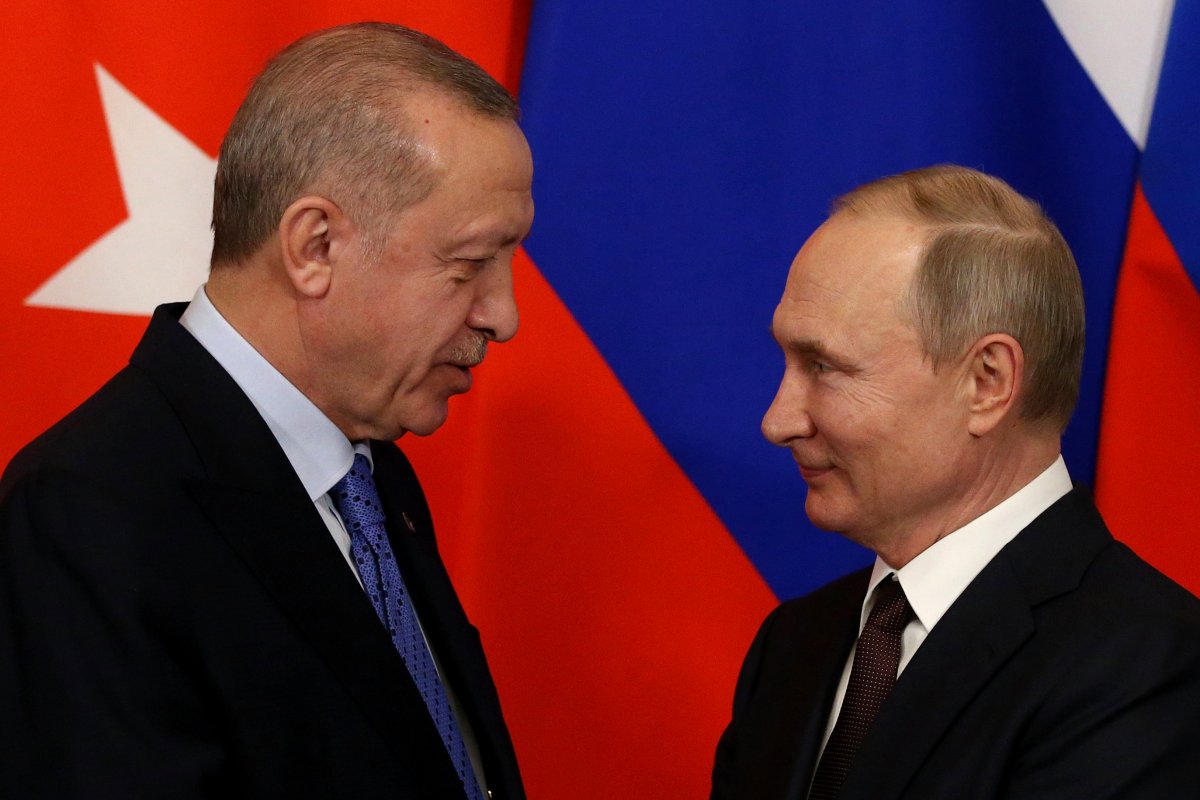Turkish President Recep Tayyip Erdoğan, who in the past has been called a "dear friend" by Vladimir Putin, has dealt a series of major blows to the Russian president in just one week.
Turkey has maintained cordial relations with Russia throughout Putin's full-scale invasion of Ukraine, opposing Western sanctions placed on the country. At the same time, Ankara has sent Kyiv armed drones and condemned Russia's decision to invade its neighbor.
The latest blows to Putin came on Monday when Erdoğan agreed to send Sweden's NATO accession protocol to the Turkish parliament "as soon as possible" after months of stalling on the decision, NATO Secretary-General Jens Stoltenberg announced.

NATO
Erdoğan called on the North Atlantic Treaty Organization to fast-track Ukraine's application to become a member of the military alliance on Saturday. Ukraine announced a bid for fast-track NATO membership in September 2022 after Putin said Moscow had annexed four Ukrainian regions partially controlled by Russia. Should Ukraine become a member, NATO would be obligated to take action to defend the country against Russia in the war.
Putin has condemned the expansion of NATO, saying that its growth was part of the reason why he invaded Ukraine last year. Since the invasion began, Finland has become a member, while Erdoğan has stood in the path of Sweden joining the alliance.
Hungary is the only other member of the alliance yet to approve Sweden's NATO bid, but Hungarian officials have signaled they would not oppose the decision should Turkey's stance on the matter shift.
Ukraine "deserves membership in NATO," Erdoğan said at a televised press conference on Saturday morning. "And I want to emphasize one point in your presence (Ukrainian President Volodymyr Zelensky) once again—no one will lose from the coming of a just peace."
The Kremlin has vowed retaliation should Ukraine gain NATO membership.
Newsweek reached out to the Russian Foreign Ministry for comment.
Bayraktar TB2 Drone Plant
Another move likely to rattle Putin is Turkey's move to greenlight the construction of a plant to produce the Turkish-designed Bayraktar TB2—a drone that has proved crucial for Ukraine in the ongoing war.
The Bayraktar TB2 is a medium-altitude long-endurance (MALE) drone made by the Turkish company, Baykar, primarily for the Turkish armed forces. Roughly the size of a small plane, it has cameras and can be armed with laser-guided bombs. The drones conduct intelligence, reconnaissance and armed missions, and can fly up to 138 miles per hour while carrying a payload size of up to 330 pounds.
The drones were used in the attack that sank the Russian warship Moskva in the Black Sea in April 2022.
Grain Deal Pressure
In a joint appearance with Zelensky, Erdoğan told reporters that Ankara wants a deal that allows grain to be exported from Ukrainian ports in the Black Sea to be extended for three months instead of two.
The deal, brokered by Turkey and the United Nations last year, is set to expire on July 17. Russia has recently been threatening to terminate the deal, and Erdoğan's push to extend the pact will likely frustrate the Russian president.
Several social media posts, including from the Telegram channel Operational Armed Forces, which says it provides operational news on Ukraine's Armed Forces, claimed on Saturday that Turkey and Ukraine have "confirmed that the grain agreement will remain, even if Russia formally withdraws from it."
The post further stated that the Turkish Navy would "ensure secure passage" of ships in the Black Sea.
Newsweek has been unable to independently verify these claims.
Azovstal Defenders
On Saturday, Russia accused Ukraine of violating a prisoner exchange deal after Zelensky brought home from Turkey five commanders who defended the Azovstal steel plant in Mariupol last year.
"We are returning home from Turkey and bringing our heroes home," said Zelensky, a day after meeting Erdoğan for talks in Istanbul.
Vasyl Bodnar, Ukraine's ambassador to Turkey, said that Turkey had not set any conditions for the return of the five commanders.
Kremlin spokesman Dmitry Peskov said Moscow was not informed in advance of their release.
"No one informed us about this. According to the agreements, these ringleaders were to remain on the territory of Turkey until the end of the conflict," he told state-run news agency RIA Novosti.
Do you have a tip on a world news story that Newsweek should be covering? Do you have a question about the Russia-Ukraine war? Let us know via worldnews@newsweek.com.
Uncommon Knowledge
Newsweek is committed to challenging conventional wisdom and finding connections in the search for common ground.
Newsweek is committed to challenging conventional wisdom and finding connections in the search for common ground.
About the writer
Isabel van Brugen is a Newsweek Reporter based in Kuala Lumpur. Her focus is reporting on the Russia-Ukraine war. Isabel ... Read more
To read how Newsweek uses AI as a newsroom tool, Click here.






